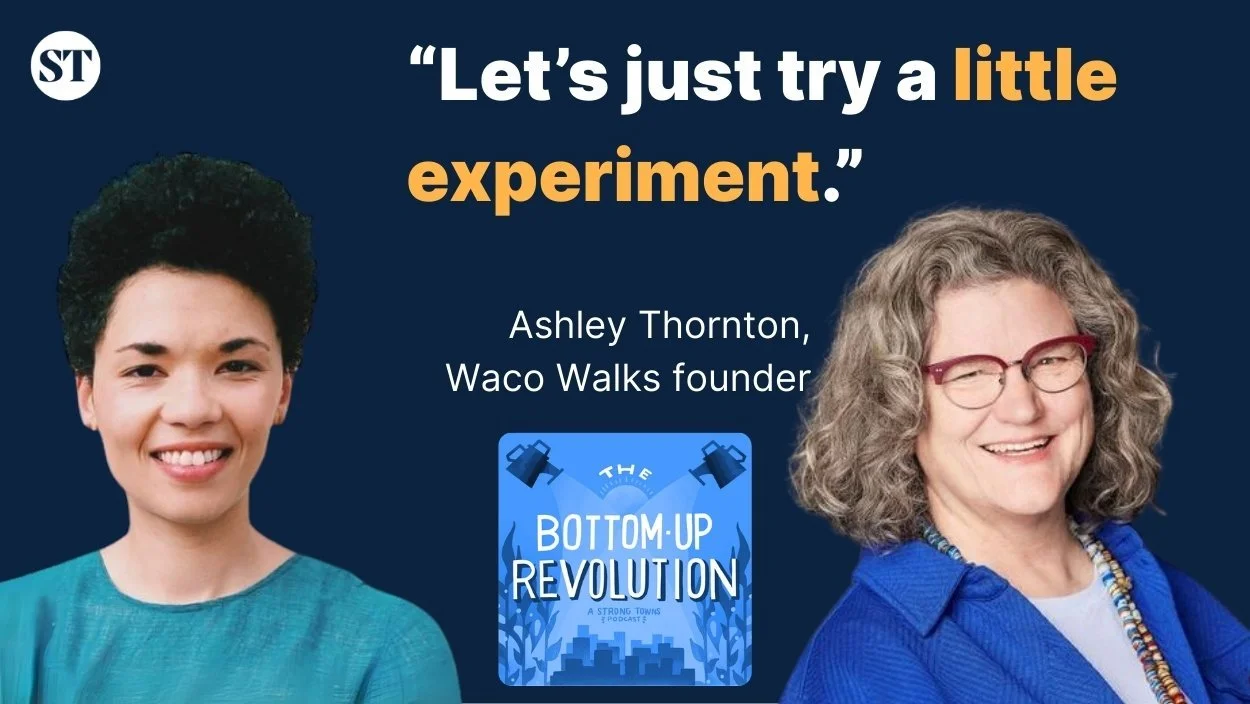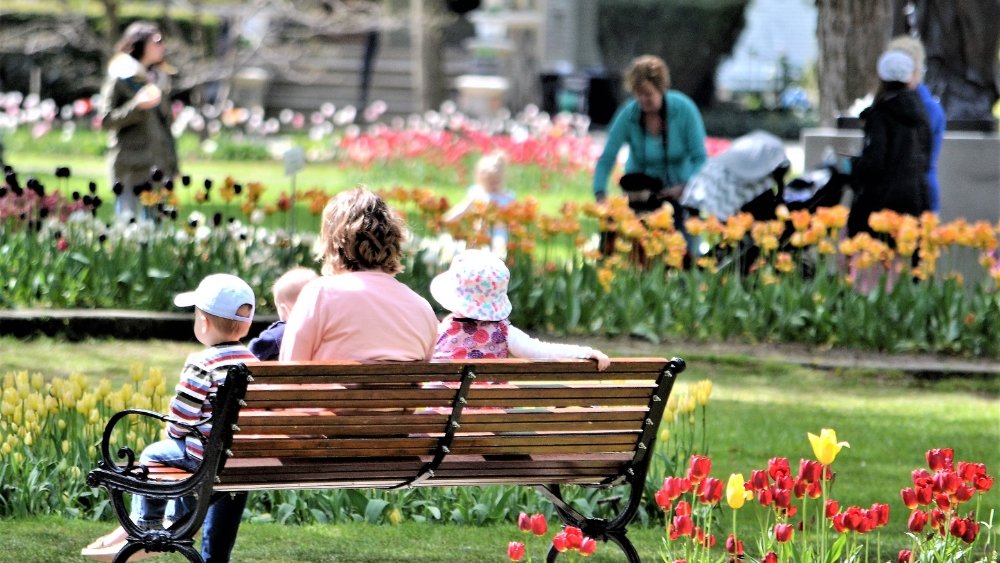A 66% decrease in crashes wasn’t enough to protect these traffic diverters, but the unified efforts of local advocacy groups and city officials might be.
Read MoreAshley Thornton is the founder of Waco Walks, an organization devoted to promoting walkability in Waco, Texas. She and Tiffany discuss the design choices that make Waco difficult to walk in and how Waco Walks is working to change that.
Read MoreCharlottesville’s political wounds ran deep. Now, the city is turning to bikes, sidewalks, and street-level trust to chart a new course.
Read MoreHere are six proven techniques that allow communities to preserve mature trees while restoring sidewalks to safe, walkable condition.
Read MoreIn April, a child was hit in a crosswalk outside a library in Annapolis, MD, despite the crossing's high-visibility signal. It’s time for officials to stop relying on signals and start redesigning the street to actually be safe.
Read MoreChuck sits down with Ryan Johnson, the founder of Culdesac Tempe, the first car-free neighborhood built from scratch in the U.S. They discuss the realities of living in and developing a community like Culdesac.
Read MoreThere is nothing radical or reckless about letting your child cross the street. So why are parents across the country facing criminal charges for doing just that?
Read MoreHow did one of the most dangerous streets in Rhode Island turn into a safe and comfortable place for people to walk, bike, and shop? It’s all about community and local context.
Read MoreChuck sits down with Steve Nygren, the founder of a unique community just outside of Atlanta called Serenbe. They discuss the process of creating Serenbe, which features walkable, mixed-use “hamlets” surrounded by nature.
Read MoreInstead of relegating walkability to college campuses and tourist towns, let’s embrace it as a key to community strength.
Read MoreAdvocates agree: better urban planning starts outside, not in a conference room. Walking your neighborhood reveals what reports can’t.
Read MoreThe U.S. senior housing market is poised to shift from a surplus to a shortage in the next five years. In this episode, Abby and Norm Van Eeden Petersman, Strong Towns’ director of Movement Building, discuss the implications of this shift and how to give more options to seniors. (Transcript included.)
Read MoreIn historic cities, land was treated as a scarce resource and every inch of it was used with ingenuity. This created productive and charming places that could meet the evolving needs of residents. Here are a few ways we can bring that traditional productivity and adaptable charm to modern cities.
Read MoreThe way we design our places forms a lesson in being in that space. Children learn important lessons from third places that bring us together — lessons they can’t learn in private spaces like yards that isolate us in the name of privacy.
Read MoreTo create change, you need community engagement. Unfortunately, many cities have complicated systems for engagement that take a lot of time and effort to work with. Here's how one community in West Virginia is cutting through that red tape.
Read MoreConducting a walking audit is an quick, easy and free step that anyone can take to start improving their place. In this article, trained architect and urban designer Edward Erfurt demonstrates how to do so, using a recently completed sidewalk project in his community as an example.
Read MoreDriving from my dismal exurban hotel to the walkable downtown of a Florida beach town led me to a resolution: Start seeking out the kind of lodging that accentuates the best reasons for visiting a place, and hopefully discourage the kind of development that’s contributing to its demise.
Read MoreAll of the land used in cities can be divided into two categories: Places and Non-Places. Places are productive destinations, while Non-Places are unproductive padding between destinations. Once these Places and Non-Places are marked on a map, it becomes obvious how much land cities waste on Non-Places.
Read MoreThousands of elected officials and people who work in local government want to make their streets safer. Here’s how you can help them do that.
Read MoreWhy is it that when a place is [pick one: walkable, bikeable, beautiful, lovable, inviting, human-scale], it so often gets coded as being “gentrified” and therefore elitist? When only the rich can afford nice places, the solution isn't to stop creating such places but to create vastly more of them.
Read More



















